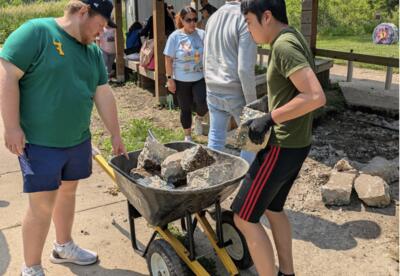Experiential Education
The Principles of Practice: (https://www.aee.org/what-is-ee)
- Experiential learning occurs when carefully chosen experiences are supported by reflection, critical analysis and synthesis.
- Experiences are structured to require the learner to take initiative, make decisions and be accountable for results.
- Throughout the experiential learning process, the learner is actively engaged in posing questions, investigating, experimenting, being curious, solving problems, assuming responsibility, being creative, and constructing meaning.
- Learners are engaged intellectually, emotionally, socially, soulfully and/or physically. This involvement produces a perception that the learning task is authentic.
- The results of the learning are personal and form the basis for future experience and learning.
- Relationships are developed and nurtured: learner to self, learner to others and learner to the world at large.
- The educator and learner may experience success, failure, adventure, risk-taking and uncertainty, because the outcomes of experience cannot totally be predicted.
- Opportunities are nurtured for learners and educators to explore and examine their own values.
- The educator's primary roles include setting suitable experiences, posing problems, setting boundaries, supporting learners, ensuring physical and emotional safety, and facilitating the learning process.
- The educator recognizes and encourages spontaneous opportunities for learning.
- Educators strive to be aware of their biases, judgments and pre-conceptions, and how these influence the learner.
- The design of the learning experience includes the possibility to learn from natural consequences, mistakes and successes.



